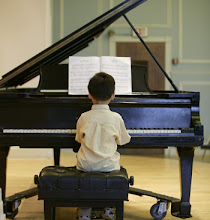American Bass-baritone Eric Owens will return to the School that introduced him to music at age six for the second of four alumni recitals this season at Settlement Music School, the largest and one of the oldest community music school in the United States.
Owens, born in 1971, began his musical studies in the late 1980’s at Settlement’s Germantown branch taking piano first, then moved his interests to oboe as he played in area youth orchestras then to singing when he enrolled at Temple University. In 2007, he was named a Settlement 100 Honoree, which, in honor of the School’s recent Centennial year, is a roster of 100 eclectic, diverse and unexpected individuals whose experiences at Settlement Music School helped shape their lives. Owen’s performance on Sunday will be preceded the day before by a masterclass with selected Settlement voice students. The public is invited to attend as audience and questions are welcome. Singers, voice students and their parents are encouraged to attend.
The concert will take place this Sunday (March 22, 2009) at 3:00 pm at the Mary Louise Curtis Branch. Tickets are $20, free for students and faculty.




Fabulous concert--Check out this review by Chestnut Hill Local writer Michael Caruso:
ReplyDelete"I’m humbled and honored to be back where it all started,” was how bass-baritone Eric Owens described his appearance as part of the Distinguished Alumni Recital Series. If the audience gathered in the PNC Bank/Presser Recital Hall of the Mary Louise Curtis Branch of Settlement Music School could have spoken as one, it would have replied that the honor was all ours and that we were humbled in hear so intelligently crafted a program sung so beautifully Sunday afternoon.
Joined by pianist Bradley Moore, the West Mt. Airy native sang a recital of music by Franz Schubert, Hugo Wolf, Johannes Brahms, John Ireland, Roger Quilter, Camille Saint-Saens, and Sir Edward Elgar. It proffered a compelling musical portrait of a singer whose international success at all the great opera houses in the world has neither damaged his unaffected joy of singing to an audience gathered in an intimate recital hall nor dulled the sharp-edged precision of his vocal artistry.
It was fascinating hearing Owens open up his voice as he sang the three Italian-language songs by Schubert that opened the program. In the first, Owens began almost cautiously, as though he were making sure that the instrument would produce its sound as expected. And, sure enough, as it did so, he allowed it to expand in scale, broadening the scope of his dynamic range from hushed whispers to full-throated roars. And all this was accomplished within the context of expertly shaped phrases and crystalline diction. By the time he concluded the third of the songs in the cycle, he had covered the gamut of emotions and the full span of colors, here sounding rhetorical and conflicted, there sounding conversational and humorous.
In three songs by Wolf after poetry by Michelangelo, Owens caught the darker, more introspective mood of the texts and Wolf’s incredible ability to compress into a short score an entire universe of thoughts and feelings through masterfully shaped phrases and telling harmonies in the piano accompaniment. Owens sang with impressive clarity of German diction, memorable command over the fullest range of dynamics and timbral variations, impressive breath control, total ease over his range from top to bottom, and focused energy.
Owens rounded out the first half of the recital with five selected songs by Brahms in which I felt his finest singing was heard. The sheer sound of his voice was exceptionally beautiful for its fullness, but even more impressive was its agility and expressivity. He molded the words and projected the notes in a seamless flow of emotional revelation.
After intermission, Owens sang songs by Ireland, Quilter, Saint-Saens, Elgar and an encore by Purcell. He displayed an understanding and appreciation of varied styles and moods that characterize a vocal artist well on his way to the prime of his career. Throughout the recital, he was splendidly joined by Bradley Moore, whose playing was not so much accompaniment as collaboration.